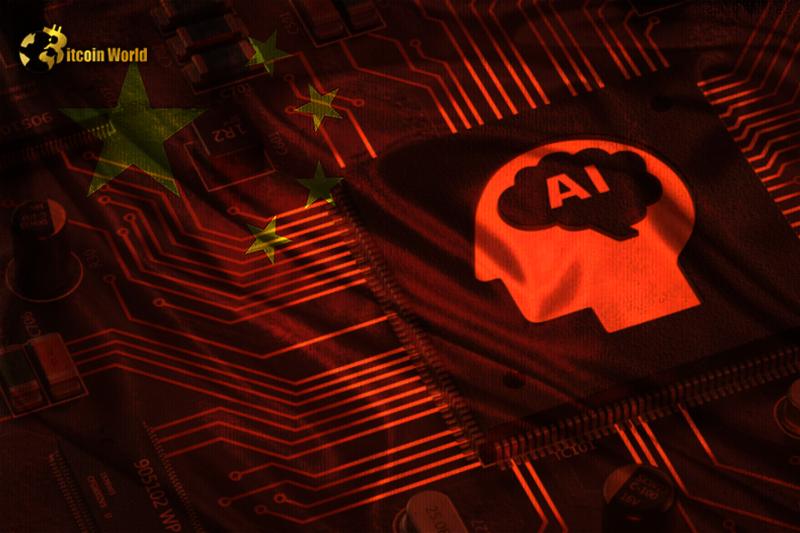
In the realm of crafting content, three pivotal elements stand out: “perplexity,” “burstiness,” and “predictability.” Perplexity gauges the intricacy of text, while burstiness delves into the ebb and flow of sentence variations. As for predictability, it measures the likelihood of anticipating the next sentence. Humans often infuse their writing with greater burstiness, juxtaposing longer or intricate sentences with succinct ones. On the contrary, AI-generated sentences tend to exhibit a more uniform structure. For the content I’m about to request you to create, it’s imperative that it exudes a healthy dose of perplexity and burstiness, coupled with a minimized level of predictability. Additionally, please adhere to crafting the content solely in English. Now, let’s reimagine the given text:
The Biden administration is contemplating additional constraints aimed at thwarting Chinese developers’ access to U.S.-manufactured AI semiconductor chips. A recent report from Reuters dated October 13 indicates that individuals closely connected to the matter divulged the administration’s focus on closing a loophole permitting Chinese developers to procure chips from the notorious Huaqiangbei electronics hub in Shenzhen, a city situated in southern China.
Sources allege that the forthcoming regulations on AI chips are slated for release this month. They are designed to extend restrictions beyond major players like Nvidia and AMD to encompass all companies involved in similar material production. During the summer, the U.S. government imposed supplementary regulations on its leading chip manufacturers, including Nvidia, a prominent figure in the chip manufacturing market. The companies were urged to restrict exports of their high-level semiconductor chips, particularly to “some” Middle Eastern nations.
Nevertheless, U.S. regulators have explicitly refuted accusations of blocking AI chip exports to the Middle East. In response, Nvidia cautioned regulators about potential long-term revenue repercussions if the company were to be effectively excluded from all or part of China. Notably, the majority of Nvidia’s revenue is derived from the U.S., China, and Taiwan, with less than 14% originating from all other countries combined.
Sources reveal that the Biden administration is also addressing a loophole enabling Chinese entities to access U.S. cloud service providers such as Amazon Web Services (AWS). The report indicates that finding solutions to these challenges appears “less clear.” In July, U.S. officials purportedly initiated considerations on restricting access to cloud computing services like AWS for Chinese companies, aiming to safeguard the nation’s advanced technology.
The U.S. initially imposed export controls on its most potent semiconductor chip technology in October 2022. Subsequently, Washington has tightened these measures and is contemplating further actions to curtail the computing capabilities of chips available in the Chinese market. Responding to the escalating measures by the United States, China declared in July that it would regulate exports of gallium and germanium, essential materials for AI chip production
- SEO Powered Content & PR Distribution. Get Amplified Today.
- PlatoData.Network Vertical Generative Ai. Empower Yourself. Access Here.
- PlatoAiStream. Web3 Intelligence. Knowledge Amplified. Access Here.
- PlatoESG. Carbon, CleanTech, Energy, Environment, Solar, Waste Management. Access Here.
- PlatoHealth. Biotech and Clinical Trials Intelligence. Access Here.
- Source: https://bitcoinworld.co.in/ai-chips-limits/
- :has
- :is
- :not
- 13
- 16
- 2022
- a
- About
- access
- Accusations
- acquisition
- actions
- Activision
- Additional
- Additionally
- addressing
- adhere
- administration
- advanced
- Advanced Technology
- AI
- aimed
- Aiming
- All
- also
- Amazon
- Amazon Web Services
- Amazon Web Services (AWS)
- AMD
- an
- and
- anticipating
- appears
- ARE
- AS
- At
- available
- AWS
- BE
- Beyond
- biden
- Biden Administration
- Bitcoinworld
- blocking
- by
- capabilities
- Category
- challenges
- China
- chinese
- Chinese market
- chip
- Chips
- City
- clear
- closely
- closing
- Cloud
- cloud computing
- CO
- combined
- Companies
- company
- computing
- connected
- considerations
- constraints
- content
- contrary
- controls
- countries
- coupled
- create
- CTO
- dated
- Derived
- designed
- developers
- dose
- during
- East
- eastern
- effectively
- Electronics
- elements
- enabling
- encompass
- English
- entities
- essential
- excluded
- exhibit
- export
- exports
- extend
- eye
- far
- Figure
- finding
- flow
- Focus
- For
- forthcoming
- from
- further
- gaming
- generative
- Generative AI
- given
- Government
- greater
- Have
- healthy
- high-level
- Hoskinson
- HTTPS
- Hub
- Humans
- if
- imperative
- impose
- imposed
- in
- Including
- indicates
- individuals
- initially
- initiated
- into
- intricate
- involved
- IT
- ITS
- July
- Keep
- leading
- less
- Level
- like
- likelihood
- limits
- long-term
- longer
- loophole
- major
- Majority
- Manufacturers
- manufacturing
- Market
- material
- materials
- Matter
- measures
- Middle
- Middle East
- model
- Month
- more
- most
- National
- national security
- Nations
- next
- notably
- notorious
- now
- Nvidia
- october
- of
- officials
- often
- on
- ones
- or
- originating
- Other
- out
- part
- particularly
- parties
- pivotal
- plato
- Plato Data Intelligence
- PlatoData
- players
- please
- potent
- potential
- procure
- Production
- prominent
- providers
- realm
- recent
- Regulate
- regulations
- Regulators
- release
- repercussions
- report
- request
- responding
- response
- restrict
- restricting
- restrictions
- Reuters
- reveal
- revenue
- Ripple
- ROW
- s
- security
- semiconductor
- semiconductor chip
- sentence
- service
- service providers
- Services
- shenzhen
- similar
- situated
- solely
- Solutions
- Southern
- stand
- States
- stricter
- structure
- Subsequently
- such
- summer
- TAG
- Taiwan
- Technology
- text
- than
- that
- The
- their
- These
- they
- Thinks
- Third
- third parties
- this
- three
- tightened
- tightens
- to
- u.s.
- U.S. government
- United
- United States
- using
- variations
- viewed
- washington
- web
- web services
- were
- while
- with
- would
- writing
- you
- zephyrnet












